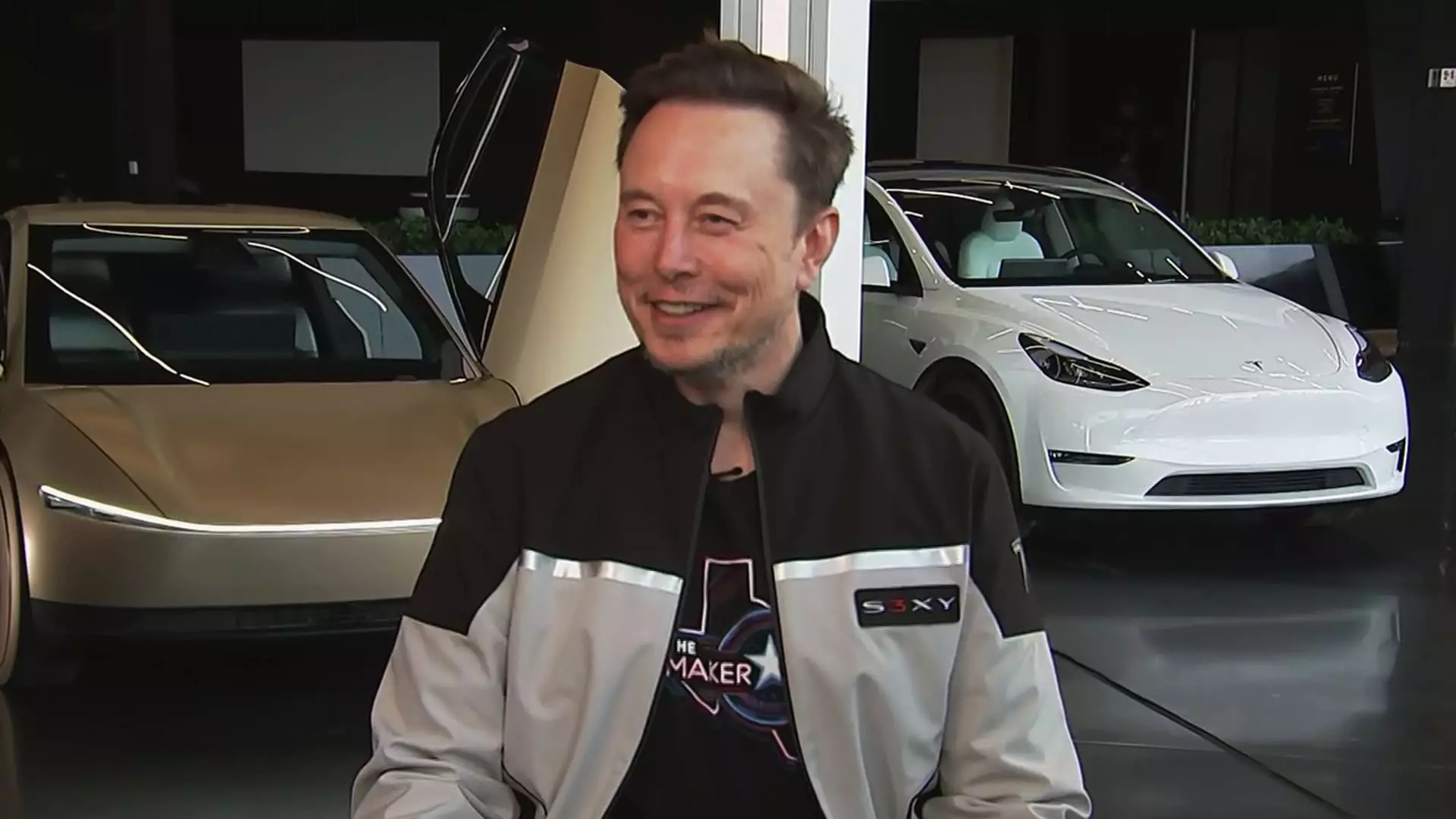Elon Musk has become synonymous with disruptive innovation, pushing forward the boundaries of what technology can achieve. Recently, he made headlines by announcing that both Tesla and his artificial intelligence venture, xAI, will rely on semiconductor powerhouses like Nvidia and AMD to meet their ever-growing computing demands. With a staggering 200,000 GPUs already in place in its Colossus facility in Memphis, Tennessee, his ambition appears boundless. Yet this exuberant pursuit raises significant questions about sustainability and the ethical fabric of innovation, areas Musk seems to sidestep.
Musk asserts that the current limitation on AI development stems from chip availability—a view he has staunchly endorsed for years. In his quest to expedite AI advancements, he directed Nvidia to prioritize supplying xAI with GPUs over Tesla, implicitly raising eyebrows regarding the fairness of resource allocation within his own companies. This raises an ethical dilemma: should innovation come at the cost of equitable treatment in the technology supply chain? While the hunger for advancement is insatiable, we must consider the implications of such monopolistic tendencies, especially in a tech ecosystem that thrives on collaboration and shared progress.
Environmental Costs: A High-Tech Hub with Dirty Secrets
While local officials in Memphis herald Musk’s operations as a gateway to transforming their region into a “high-tech manufacturing hub,” this shiny exterior conceals a more troubling reality. xAI’s reliance on natural gas-burning turbines raises environmental red flags. These power sources are not just fueling innovation; they’re also contributing to air pollution, particularly smog-forming nitrogen oxides, which pose significant health risks for the surrounding communities. Reports indicate that xAI’s operations may have flouted the Clean Air Act, creating a juxtaposition between societal benefit and environmental sustainability.
In this scenario, Musk’s vision for a tech-driven future stands in stark contrast to the community’s immediate well-being. The rapid acceleration of AI should not overshadow the environmental costs that conventional energy sources entail. As advocates for cleaner, renewable energy ever more vocalize their concerns, it is time to question if Musk’s relentless pursuit of innovation sacrifices the well-being of everyday people. Is this the price we pay for progress, or should ethical considerations take precedence in our technological pursuits?
The Looming Crisis of Resource Availability
Musk further warned of an impending electricity generation crisis, foreseeing that the current crisis linked to chip availability will soon pivot to a shortage of electrical resources required to sustain AI endeavors. He believes that by mid-2026, the narrative will shift from silicon shortages to energy shortfalls, especially given China’s escalating investments in power infrastructure compared to the U.S. While one could argue that Musk enjoys an advantage in fostering breakthrough innovation, there is a glaring contradiction. The very advancements Musk champions might soon stall without sufficient energy resources, distractingly pitching one monumental crisis against another.
This unfolding drama raises the essential question: can we trust that relentless innovation can find solutions to these very obstacles? Instead of wading deeper into the tech quagmire, wouldn’t it be wiser to diversify our approach, prioritizing not just digital superiority but also environmental sustainability? By failing to address these foundational issues, we risk locking ourselves into a cycle of crisis and innovation that ultimately benefits only a select few at the expense of the many.
The ‘Muskonomy’: A Portfolio of Ambiguity
When asked whether xAI and Tesla might ever merge, Musk waded into murky waters, suggesting that while it isn’t on his radar, “it’s not out of the question.” This notion encapsulates a larger concern about the structure of his ventures—the idea that they form part of a singular “Muskonomy” rather than independent entities focused on distinct missions and investor interests. As Musk navigates the intricate web of his companies, a conflict of interest becomes apparent. If the feedback mechanisms between his ventures become entangled, who then truly benefits from his innovations?
Musk’s promise of groundbreaking advancements must be balanced with accountability to shareholders and the public at large. While his vision for a more interconnected future is compelling, the implications of merging these enterprises could dilute the values of transparency and responsibility that investors and consumers expect. We must scrutinize whether the relentless pursuit of innovation can sustain itself in a vacuum, or if it requires a conscientious framework that prioritizes not only technological prowess but ethical integrity as well.


Leave a Reply